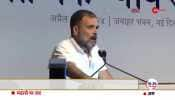Tehran: Iran said on Tuesday it would soon resume nuclear talks with Turkey and Brazil -- a tentative first step back to international negotiations after Tehran was hit with a new wave of sanctions over its disputed nuclear work.
Iran has belittled the UN, US and European sanctions and President Mahmoud Ahmadinejad said on Monday he would return to long-frozen talks with world powers but on certain conditions only, and not before the end of August.
His foreign minister said talks would start before then with the two countries with which it agreed a nuclear fuel swap deal in May -- echoing a UN-brokered pact that Tehran backed out of late last year -- and which voted against the UN sanctions.
"There were some contacts with the foreign ministers of the three countries (Iran, Turkey and Brazil)," Manouchehr Mottaki told a news conference. "A joint meeting is on the agenda and we will announce it in the coming one or two days."
Iran has held no substantive talks with world powers since the deal in principle on the fuel swap struck with Russia, France and the United States in October.
The pact would have seen Iran sending 1.2 tons of low-enriched uranium (LEU) -- about 70 percent of its stockpile at the time -- abroad in exchange for specially processed fuel rods needed to keep the Tehran medical research reactor running.
In a turnabout, Iran agreed in talks in May with Brazil and Turkey to part with 1.2 tons of LEU. But by then Iran`s LEU reserve had doubled in size, devaluing the swap`s terms in Western eyes since it would no longer divest Iran of enough LEU to prevent its use for an atom bomb, if refined to high purity.
So the May agreement proved too little too late to prevent a new batch of punitive sanctions from the United Nations, European Union and United States.
Meanwhile, Iran has increased suspicions abroad by launching enrichment up to a level of 20 percent purity, asserting this will yield raw material for making the reactor fuel rods without foreign help -- but at the same time advancing much of the way down the road toward weapons-grade enrichment.
New Iranian conditions
Russia, which backed the US-led push for further sanctions but has since complained about the United States and the European Union issuing stricter unilateral measures, said on Tuesday it wanted to get back to talks with Tehran.
Foreign Minister Sergei Lavrov said he wanted talks between Iran, the United States, Russia and the watchdog International Atomic Energy Agency focusing on providing Iran with reactor fuel rods so it would need to escalate enrichment itself.
"In the wake of the Brazilian and Turkish initiative, Russia, along with the United States, approached the director of the IAEA and proposed we arrange a meeting of technical experts from our three countries, including Iran, to discuss the possibility of supplying fuel for the experimental reactor in Iran, so that there will be no need for Iran to enrich the uranium to a level of 20 per cent," Lavrov said.
"I hope very much that Iran will respond positively and that this will help prevent the situation from deteriorating," he told reporters during a visit to Israel, which considers Iran`s nuclear campaign an existential threat.
On Monday, Russia complained to the UN Security Council about what UN diplomats said was Germany`s seizure of items bound for a nuclear power plant in Iran, saying such moves were "not in line" with UN rules.
On June 19, French President Nicolas Sarkozy told Russian President Dmitry Medvedev that France was ready to talk with Iran at the IAEA "without delay," using the Tehran declaration by Iran, Brazil and Turkey as a starting point [ID:nPAB008398].
The West fears Iran`s nuclear work is aimed at developing the means to build bombs because of its history of secrecy and restricting IAEA inspections. Tehran says it will be solely for generating electricity and isotopes for medicine and farming.
Ahmadinejad has called on the major powers to "clarify" three things before talks could resume: their attitude to Israel`s alleged nuclear arsenal, their stance on commitments to the nuclear Non-Proliferation Treaty and whether they come to the table as Iran`s friend or its enemy.
World powers were likely to dismiss such conditions as irrelevant to the main issue -- Iran`s refusal to negotiate limits and transparency with respect to its nuclear activity.
"Somehow implying there`s a linkage between the Iranian issue and the Israeli issue ... will certainly not make life easier," said a Western diplomat versed in the Iran issue.
"Saying that as a punishment that they only want talks in the third week of August -- this is posturing which we shouldn`t take too seriously ... We need to wait for Iran`s official response on the (swap) plan and the offer of talks from the EU."
Bureau Report















